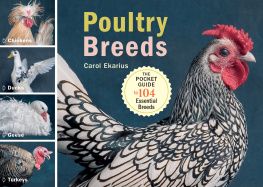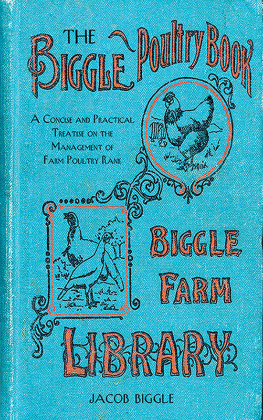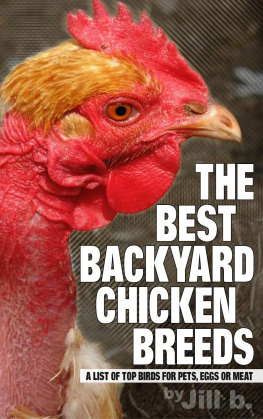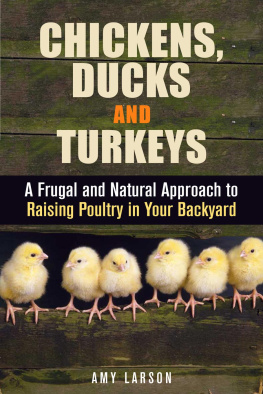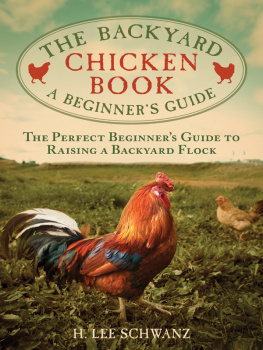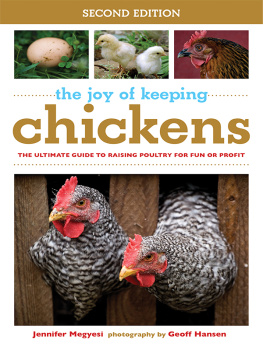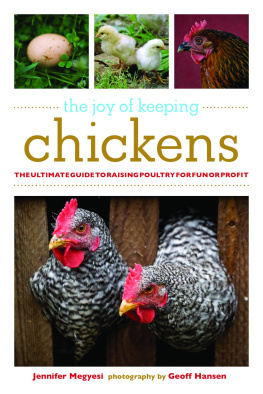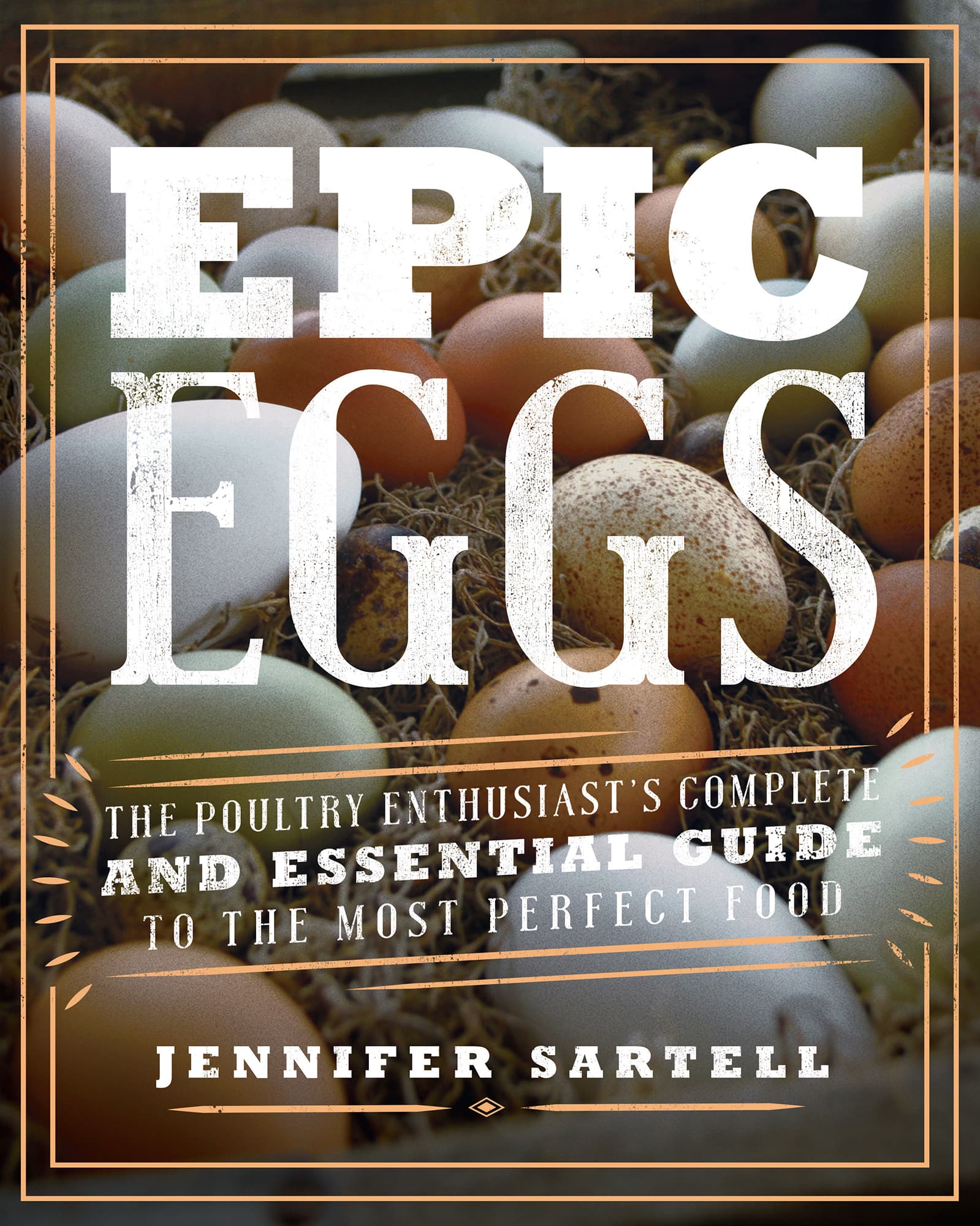EPIC
EGGS

THE POULTRY ENTHUSIASTS
COMPLETE AND ESSENTIAL GUIDE
TO THE MOST PERFECT FOOD

Jennifer Sartell

PREFACE

The Morning Egg
R AISING YOUR OWN POULTRY can be a rewarding experience. What I truly appreciate about it is the day-to-day rhythm and the little moments spent with our flock, observing their nuances, the sounds they make, and how they shape the spirit of our farm.
As the sun climbs over the horizon, it filters into our bedroom window. I hear our roosters faint crow. Hes locked in the coop, as Im still in bed and havent made my way down to open the door. A sleepy smile spreads across my face as I picture him, all business, strutting and strapping, taking very seriously his job of alerting the world that a new day has come, as if he were the one personally drawing up the daylight.
The hens will be waking now, too, and fussing around the feeders, enjoying their breakfast, their fat bottoms up in the air as they scratch and pick at food particles. They will be making their way to the nest boxes, eyeing each one from below with a tilt of the head as they decide which cubby will be used today.
Its springtime, so the whirr of incubators and the peeping of chicks in the brooder fill the empty silence of the farmhouse morning. These sounds mingle with the burping of the coffeepot and the hum and crackle of the last few fires of the year in the wood-burning furnace. They are the song of home.
Chicken keepers are doers; they actively participate in life. They enjoy caring for an animal and benefiting from that relationship in the form of a tangible, useful product. They work for their chickens and are paid in eggs. Its a respectful relationship balanced in each species nurturing the needs of the other. A barterwe feed the chicken and the chicken feeds us.
So I pull on my boots and my lightweight coat, grab the chicken-shaped wire egg basket, and head to the coops to take care of everyone for the day. Upon opening the door, a cacophony of clucks and throaty sounds greets me. The ducks in the adjoining coop hear me with the chickens and quack in a way that almost sounds like theyre laughing. The geese scream their highest-pitched honks, which send our tom turkey into a shock gobble. The guineas, maybe the loudest of all, echo with a continuous banter of short, staccato calls. Its the most enthusiastic greeting Ill have all day!

I top off the water and feed and check out the nest boxes. Three fresh eggs sit like treasures in a chest: one a lovely peach color, one a light green, and one a rich chocolate brown, still warm from the hens, and even a damp spot from the laying process on the peach egg. This is truly the farm-fresh experience. There will be more as the day goes on. Ill check again in the evening, when I bring the dinner scraps out and put everyone to bed for the night. These three eggs will be my breakfast.
In the other coop, I find two oblong duck eggs that will be perfect for baking, a guinea egg, and a turkey egg that I will add to the collection meant for the incubator.
With my basket of oval jewels, I head to the farmhouse for breakfast.
As an egg slides from the cracked shell into the oiled pan, the delicate white starts to sizzle and pop. I can hardly wait to dip my toast in the soft-cooked yolk, which sits pert, perky, and orange in the center of the egg. A farm-fresh yolk is more like a pocket of rich, buttery sauce, silken in texture and tasting truly of egg, a flavor that many store-bought eggs lack.
Farm-fresh eggs are delicious. Once you eat one, youll have a hard time enjoying commercial eggs. You will find yourself saying things like, These taste like rubber, or Just look at this yolkits flat, pale, and runny. Those who dont raise poultry will think youre an egg snob. They may roll their eyes behind your back and secretly wish you would eat your breakfast in silence.
Which is fine. Its our job as poultry keepers to educate the world and to let people know what theyre missing. Give them a dozen of your eggs and soon theyll be joining in the breakfast accusations.
Farm-fresh eggs are delicious. Once you eat one, youll have a hard time enjoying commercial eggs.
INTRODUCTION

An Old New Fad
I TS BEEN SAID that keeping backyard chickens is a fad. If so, it is a fad that is as old as written language.
Chickens were first domesticated around 7000 BCE in India and China, which means that we have shared a relationship with this animal for more than 9,000 years now. With that kind of shared history, its hard to think of chicken-keeping as a fad.
For myself and many others today, keeping chickens is one aspect of a return to small-scale sustainability that is often described as a back to the land movement, or a return to the landwhich itself is sometimes called a fad. But its not as though that land we are returning to didnt exist all along. Now, as always, there is something inherently human about raising ones own food. Theres a reason we are drawn to the beauty of gardens and the nostalgia of chickens dotting the pastoral landscape. Traditionally, these bucolic scenes are woven into our history, are a part of our poetry, literature, and artthe very things that define our humanity.
As a modern species, weve tried the faddish new ways. We gave the microwave a shot; we tried out prepackaged, overprocessed, fast food; eaten meat pumped with antibiotics and growth hormones. We gave it a few decades, and many are deciding that the trial period is over, that this artificial lifestyle is not for us. Weve heard the call: that quiet instinct that still whispers to our civilized selves. It is the voice of the generations who tended and cared for the food that they ate, from a time where food was respected, nurtured, and romanced.
This is not a fad at all, but simply a rediscovery of what has always been present. We are relearning a classic language as we renew lost crafts.
For many, keeping chickens is one aspect of a return to small-scale sustainability often described as back to the land. Now, as always, there is something inherently human about raising ones own food.


